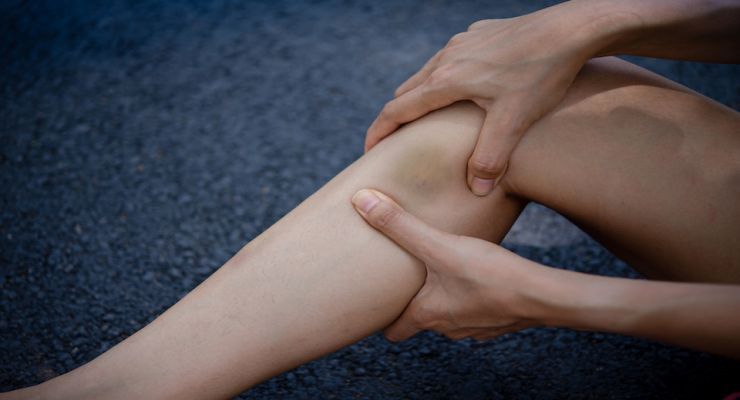Everyone knows the puffy ankles and stiff legs that come with a long car trip or plane ride. They are no fun but often disappear with a little movement at a rest stop or a walk around the airport during a layover. While this leg swelling is the simple result of blood flowing to your legs, other swelling could indicate an underlying health condition. Here are the most common reasons your legs might be swelling and what you can do.
Reasons for leg swelling
Varicose veins
Varicose veins and chronic venous insufficiency cause the valves in your legs to trap the blood in your veins rather than letting it continue to your heart. This causes blood to pool and create raised, visible veins on your legs. It can also lead to swelling, cracked skin, sore legs, changes in skin color, and pain after standing. Try wearing compression socks to relieve the pressure, and regularly walk to encourage blood flow. If your varicose veins become large, it is a good idea to consult your doctor for various treatment options.
Deep-vein thrombosis
Though swelling in both legs after long periods of sitting or standing is normal and usually nothing to worry about, it is a good idea to pay attention when just one leg begins to swell. Deep-vein thrombosis is when a blood clot forms deep in the leg and, similar to varicose veins, blocks the flow of blood, leading to swelling. Different from varicose veins, however; a blood clot can actually prove deadly. It the clot breaks loose, it can easily travel through the blood to your lungs or brain and cause a pulmonary embolism or stroke. Obesity, surgery, pregnancy, immobility (such as a sickness or long plane ride) and birth control can all increase your chances of developing a blood clot. If you have any swelling, tenderness, unusual warmth or inexplicable bruising in just one leg, consult your doctor as soon as possible. They will most likely prescribe blood thinners to help break up the clot
Inflammation
Obviously, if you break or sprain a bone or tear a ligament, you are bound to have swelling. This swelling is known as inflammation and is your body’s way of protecting itself against the damage and helping repair the injured area. If you injure your leg, you are bound to experience inflammation. Inflammation without injury, however, is known as chronic inflammation and can be managed with a healthy, whole foods diet and adequate exercise. If you have been injured and the musculoskeletal pain doesn’t disappear after a few days of rest, make an appointment with your doctor.
Pregnancy
If you are pregnant, you are probably well accustomed to the swelling that comes along with it. Natural fluid retention, excess pressure on veins due to the extra weight of your uterus and your changing hormones over nine months all contribute to swollen extremities and puffy legs. The only surefire way to eradicate these symptoms is to have your baby. In the meantime, keep your legs elevated, go for a relaxing swim, avoid standing for excessive periods, stay cool, drink lots of water, and keep to a regular, low impact exercise routine that you have discussed with your doctor.
Edema
Edema is a particular type of swelling caused by fluid retention in your body’s tissue. This can stem from a number of causes, but the most common are, standing or sitting for too long, being overweight, eating too much salty food, or premenstrual symptoms. Rarely, edema could be an indicator of a more serious condition such as kidney disease, congestive heart failure, inadequate lymphatic system, or liver damage. If the swelling doesn’t go away once you adjust your activity levels, or if you have other symptoms along with the edema such as chest pain or difficulty breathing, see a doctor as soon as possible.
Remember, swelling can be an indicator of many conditions. Pay attention to your body and keep track of any other symptoms you may have. It is important to provide an adequate history of events and any medication you are on so that your doctor can help you with a treatment plan. Though most swelling is benign and will go away within a few hours, it is still essential to stay alert. Any time you can press into your skin, and it leaves an indent, it is crucial to visit a healthcare professional right away as this could be a clue for a serious medical emergency.
-The Alternative Daily

